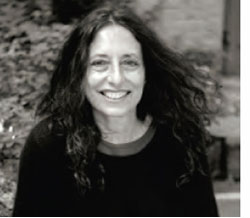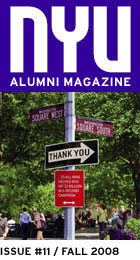fiction
In a Different Way
Renowned scholar and psychologist turns to fiction
by Suzanne Krause / GSAS ‘08
 Twenty-six years after sparking what some have called a revolution with In a Different Voice: Psychological Theory and Women’s Development, her book about gender and morality, renowned psychologist Carol Gilligan has now turned her gimlet eye to novel writing. Her debut effort, Kyra: A Novel (Random House), a contemporary variation on the theme of Dido and Aeneas from Virgil’s The Aeneid, traces the emotional complexities of the title character’s passionate relationship with her architectural career and her lover Andreas, a musical conductor and theater director.
Twenty-six years after sparking what some have called a revolution with In a Different Voice: Psychological Theory and Women’s Development, her book about gender and morality, renowned psychologist Carol Gilligan has now turned her gimlet eye to novel writing. Her debut effort, Kyra: A Novel (Random House), a contemporary variation on the theme of Dido and Aeneas from Virgil’s The Aeneid, traces the emotional complexities of the title character’s passionate relationship with her architectural career and her lover Andreas, a musical conductor and theater director.
The novel isn’t Gilligan’s first step into creative writing; her 2002 play, The Scarlet Letter, tells the story of an adult Pearl and has toured college towns on the East Coast. The native New Yorker is University Professor at the Steinhardt School of Culture, Education, and Human Development.
Why start writing novels now?
I had studied literature in the past and always felt the arts, because of their associative methods, had access to truths about the human experience—particularly where truths were layered, and so the use of metaphors and images made possible a much deeper exploration into human experience. That's always been what interests me, whether in psychology or literature.
How did the character of Kyra come to you?
The novel rose very specifically in response to a moment that focused certain questions to me about love—what love is, and what a risk love is—and what happens when a man, Andreas, does something without knowing how his actions will register on Kyra, the woman he loves. And it shakes her whole sense of reality. I didn't want to do research on that question; what I wanted was to enter it more deeply.
How was writing it different from your nonfiction work?
It felt very risky. You turn on your computer and it's a blank screen, and there's no data to look at. A painter friend says every new picture is like jumping off a cliff, so to take that first step over the edge was like "Ugh!" But I loved that process. In a strange way it felt easier to me. If I look at my academic writing, it's so much about voices—listening, hearing, providing resonance for people's voices. So, in some sense, the shift to fiction was just that the people whose voices I was listening to did not exist.
photo © joyce ravid







